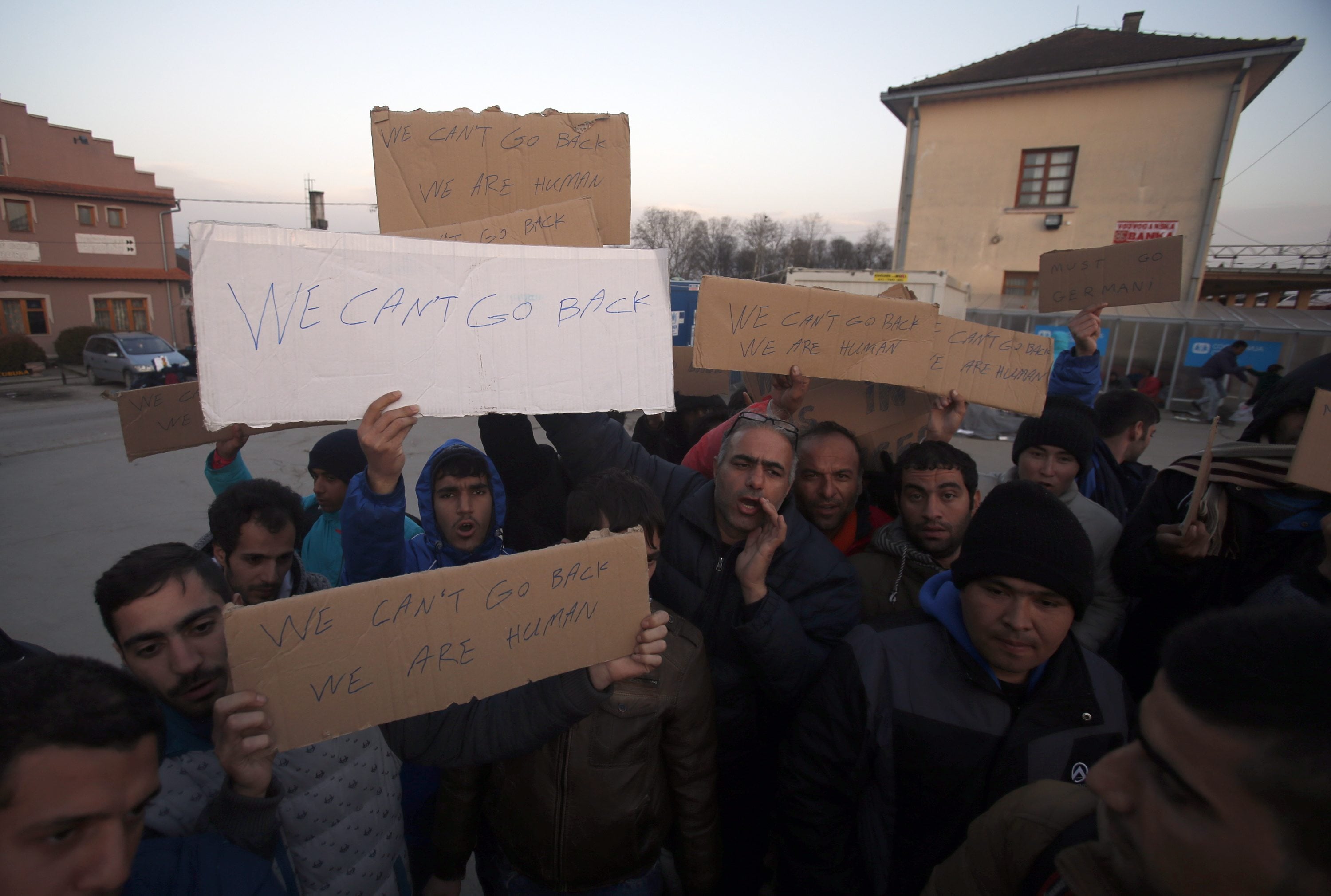Europe’s efforts to contain refugee flows frayed further as Austria and Slovenia stepped up border patrols and terror attacks struck Turkey, the key transit land for Middle Eastern asylum seekers.
Bombings of military convoys Wednesday and Thursday threatened to drag Turkey further into Syria’s civil war, raising questions whether the European Union can rely on it to stem the inflow. Prime Minister Ahmet Davutoglu canceled a trip to Brussels for EU-Turkey meetings on the refugee problem.
Renewed violence on Europe’s southeastern flank coincided with more European governments taking matters into their own hands, with Austria announcing additional steps to fortify its frontiers and predicting that neighboring countries will follow.
“The idea that Austria can solve the asylum question for the entire EU is unthinkable,” Austrian Chancellor Werner Faymann told reporters in Brussels before a summit of all 28 EU leaders. “We’re nowhere near a solution.”
Austria was rebuked by the European Commission after setting limits on new arrivals, stepping up identity checks on its border and joining Slovenia and other Balkan countries in setting up joint controls in Macedonia to filter out refugees entering from Greece.
“We are questioning if this decision is in line with European law,” President Jean-Claude Juncker said of Austria’s decision to limit asylum applications to 80 daily and to cap refugee transits to Germany at 3,200 daily.
Turkey’s emergency forced Davutoglu to abandon a meeting with 11 EU leaders to come up with an orderly method of transporting refugees from camps in Turkey to new homes in Europe and to end the chaotic sea crossings to Greece that have left more than 300 dead in the first six weeks of 2016.
While German Chancellor Angela Merkel voiced “complete understanding” for the Turkish absence, she said a joint approach with Turkey backed by 3 billion euros ($3.3 billion) in EU financing remains the best hope for ending national go-it-alone measures.
“It makes sense for Europe and Turkey to share the burden, but we also clearly need to protect the external borders,” Merkel said.
The latter point was a reference to Greece’s troubles in policing its maritime border with Turkey, which became the main route into Europe last year for people escaping the fighting in Syria.
An EU agreement last year to spread 160,000 refugees across the bloc is essentially dead. A mere 583 have been rehoused so far, with Hungary, Slovakia, the Czech Republic and Poland leading a boycott of the system.
The four eastern states accuse the Athens government of pointing new arrivals northwards. Greece countered that it is overwhelmed, with 77,000 refugees making landfall in the first six weeks of 2016, compared with 5,000 in the same period last year.



